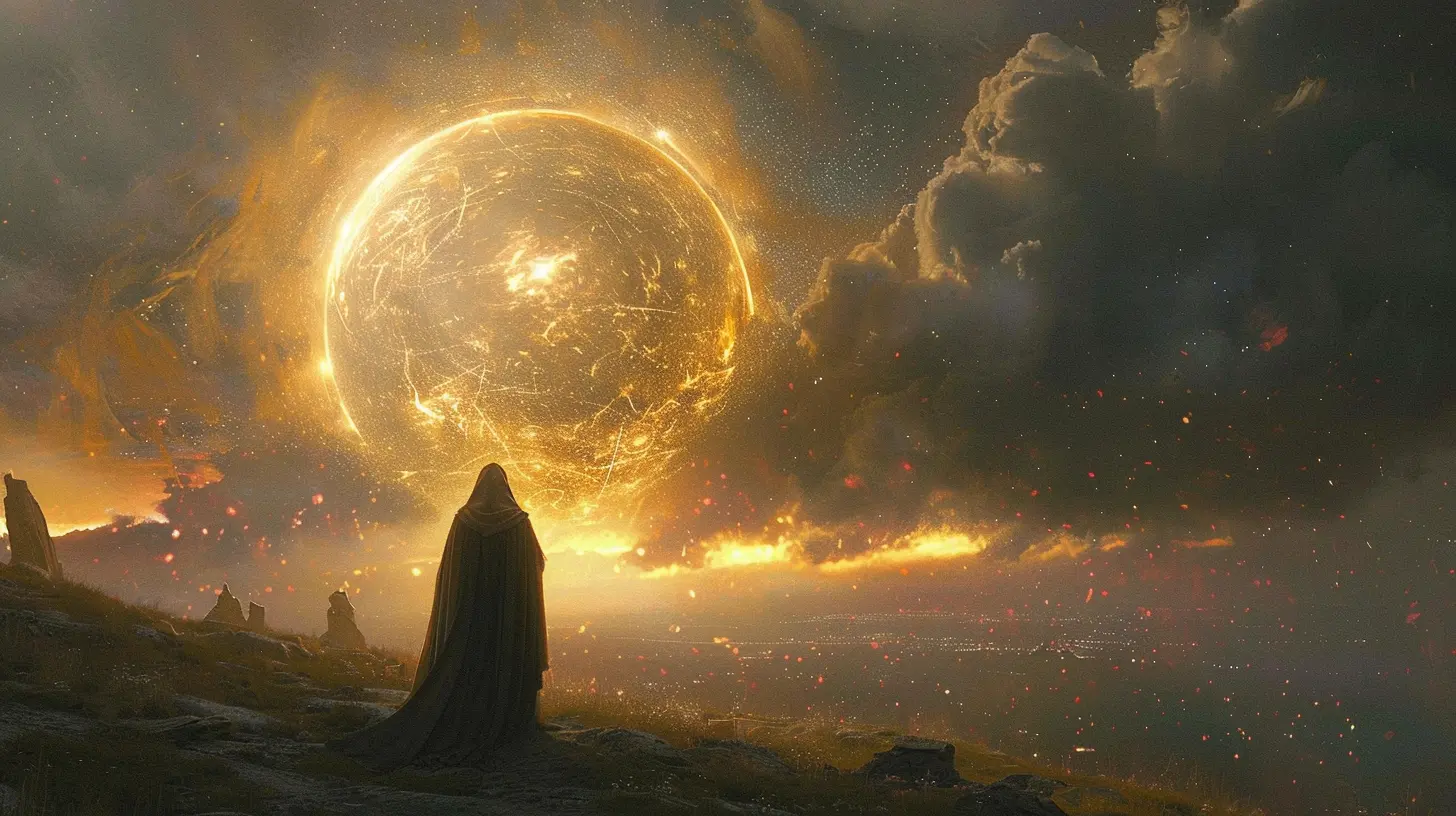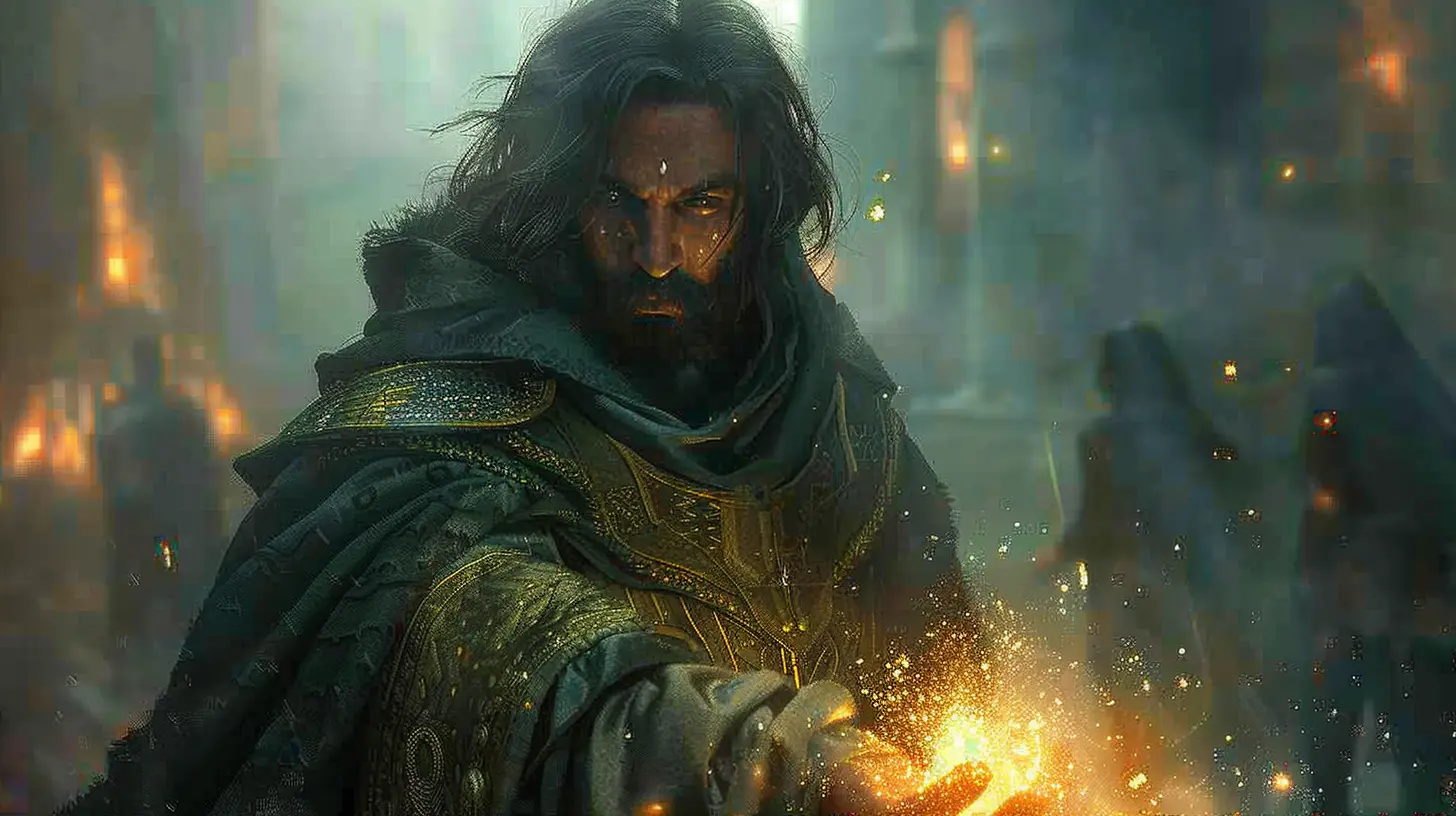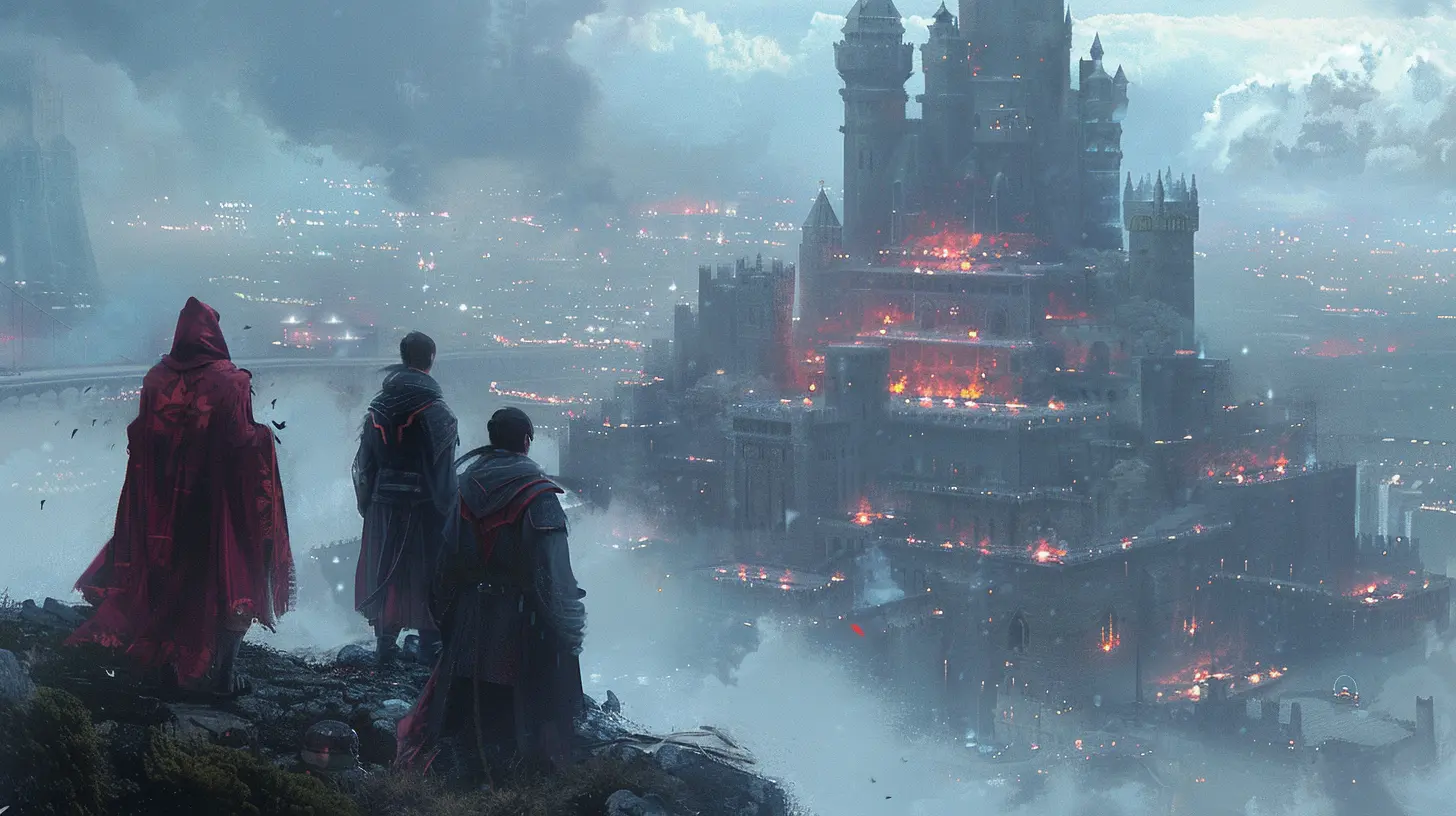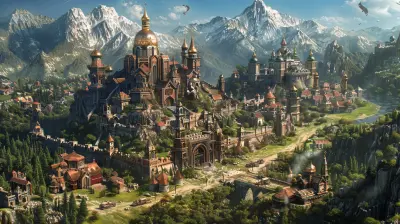The Rise of Realism in Fantasy RPGs: Balancing Magic with Mundanity
21 May 2025
Fantasy RPGs have come a long way, haven’t they? Once upon a time, games in this genre were all about fireballs, enchanted swords, and mythical beasts. But these days, the trend is shifting. Modern fantasy RPGs are leaning toward realism. I’m not saying the dragons have flown off or the wizards have lost their spells, but there’s a noticeable shift toward grounding these fantastical worlds with a sense of reality. How did this happen? Why do we suddenly want a pinch of mundanity in our magical escapades? Let’s find out.
A Quick Look at Where It All Began
Fantasy RPGs owe their roots to tabletop classics like Dungeons & Dragons (D&D). Back then, the focus was pure escapism—epic battles, spell-slinging, and treasure hunts in forgotten dungeons. The digital age carried forth that legacy, with games like Final Fantasy and The Elder Scrolls dominating the scene.But let’s be real: these older games, as amazing as they were, didn’t try too hard to mimic reality. They weren’t supposed to. Magic was a tool for problem-solving, the rules of physics were often optional, and your character could carry an absurd number of potions without breaking a sweat. It was fun, larger-than-life, and unapologetically fantastical.
Fast forward to today, though, and things are a little different. Now we’re seeing games sprinkle in realism, grounding their worlds with grit, moral complexity, and believable consequences. It’s no longer just about casting spells and slaying dragons—it’s about surviving in these worlds, questioning your choices, and feeling the weight of the life your character lives.
Why Realism? What Changed?
So, why did fantasy RPGs decide to dial down the “fantasy” and amp up the “reality”? The answer lies in both player expectations and storytelling evolution.1. Players Want Immersion
Immersion is king. Gamers want to feel like they’re actually in these worlds, and realism helps achieve that. If you’re roaming the streets of a medieval city in The Witcher 3, you don’t just see castles and market stalls—you see peasants struggling to make a living, soldiers arguing over wages, and weather systems that feel, well, real.Magic is still there, of course, but it’s not the fix-all solution it used to be. You can’t just zap your enemies into oblivion without consequences. Maybe your character gets physically drained after a fight, or casting a spell draws unwanted attention. These details force players to think before they act, making the world feel alive and authentic.
2. Storytelling Has Evolved
Let’s talk about stories for a second. Back in the day, fantasy RPG narratives were pretty straightforward: “Here’s some evil dude, go kill him, become a hero.” And while that formula still works, modern players are craving more depth.Today’s games aim for morally ambiguous plots, where every choice feels like a double-edged sword. Do you help a kingdom fight off invaders if it means the villagers will suffer higher taxes? Do you side with a mage who experiments with dangerous spells, knowing it could save lives or lead to disaster? These grey areas add layers of realism to the storytelling. It’s not just black-and-white heroics anymore—there’s a whole lot of messy, relatable “human” in there too.
The Balancing Act: Magic vs. Mundanity
Okay, let’s address the elephant in the room. If fantasy RPGs are becoming more realistic, where does that leave magic? Isn’t magic the point of fantasy? Absolutely—but the key lies in balancing the magical with the mundane.1. Magic as a Resource, Not a Cheat Code
In older games, magic was often limitless. Need a healing spell? Cast it. Need a fireball? Keep spamming that button. But modern RPGs are putting constraints on magic, treating it more like a resource than an infinite cheat code.Take games like Dragon Age: Inquisition, for example. Mages have to manage their mana carefully, and using magic comes with risks, like attracting dangerous enemies or even causing harm to allies. Suddenly, magic becomes a thoughtful, strategic tool rather than a free pass to victory.
2. Mundane Elements Make Magic Shine
Here’s a fun analogy: imagine a concert. If every single song is a loud, high-energy banger, it’s exciting at first—but eventually, you get tired. Now throw a slow, emotional ballad into the mix. That contrast makes the high-energy songs feel even more electrifying.The same goes for fantasy RPGs. Adding mundane elements—like complex political systems, limited resources, or the simple act of cooking a meal—makes the magical moments stand out more. When everything is fantastical, nothing feels special. But when magic is rare or restrained, it becomes awe-inspiring again.
Examples of Realism Done Right in Fantasy RPGs
Not all RPGs strike the perfect balance, but a few have truly nailed it. Here are some standout examples:1. The Witcher 3: Wild Hunt
Let’s give credit where it’s due. The Witcher 3 practically redefined realism in fantasy RPGs. Whether it’s the weather impacting Geralt’s journey, townsfolk reacting to your choices, or the deeply personal, morally grey storylines, the game feels grounded while still being undeniably magical.Magic exists in The Witcher, but it’s treated with caution and reverence. You won’t find Geralt casually throwing fireballs—because magic is part of the world’s lore, not a gameplay crutch.
2. Dark Souls Series
If there’s one series that embodies mundanity wrapped in mysticism, it’s Dark Souls. Yes, the setting is fantastical, with its cursed kingdoms and towering monsters, but the gameplay is rooted in survival. Every fight feels gritty and real. Your weapons break, your stamina depletes, and magic is often a high-risk, high-reward endeavor. It’s a world where every choice truly matters, and every encounter feels like life or death.3. Kingdom Come: Deliverance
Though not strictly a “fantasy” RPG, Kingdom Come: Deliverance deserves a mention. It stripped away all magic and relied solely on realism. The result? A game that shows how engaging a well-crafted, grounded world can be. That said, its success highlights why the balance between magic and mundanity is crucial—it’s the absence of magic that makes you appreciate why fantasy is such a beloved escape.Where’s the Genre Headed Next?
The rise of realism in fantasy RPGs isn’t just a passing trend—it’s a full-blown movement. As technology evolves and game developers get even more ambitious, we can expect these worlds to feel even more lifelike. AI-driven NPCs, procedurally generated ecosystems, and even more nuanced decision-making could redefine the genre.But the real magic? It’ll lie in how these games continue to balance realism with fantasy. After all, no one wants a fantasy game entirely devoid of its wonder. The challenge is in keeping that sense of awe alive while making the world feel relatable.
The Takeaway for Players and Developers
For players, this shift toward realism isn’t a bad thing—it’s an opportunity. Fantasy RPGs are giving us richer, more believable experiences that challenge our decisions and draw us deeper into their worlds. For developers, the rise of realism is a reminder that magic and mundanity don’t have to compete; they can complement each other in ways that elevate the genre.And let’s be honest: who doesn’t love the idea of slaying dragons one minute and sitting by the campfire, patching up your gear, and reflecting on your choices the next? It’s the perfect mashup of wonder and relatability.
all images in this post were generated using AI tools
Category:
Fantasy RpgsAuthor:

Jack McKinstry
Discussion
rate this article
3 comments
Natalia McDonough
Who knew that mixing magic with a sprinkle of reality could create such captivating chaos? It’s like adding a dash of salt to chocolate chip cookies! Here’s to dodging dragons while balancing our budgets—because who wants to slay foes on an empty stomach? Let’s embrace the epic everyday!
May 31, 2025 at 3:01 AM

Jack McKinstry
Absolutely! It’s the blend of the extraordinary and the everyday that truly enriches our adventures. Here's to finding magic in the mundane!
Lacey McKenzie
This article insightfully explores the delicate balance between realism and fantasy in RPGs. As developers weave intricate narratives and mechanics, the challenge lies in ensuring that magic complements the mundane rather than overwhelms it. This evolution enriches storytelling, making worlds feel more immersive and relatable for players. Great read!
May 23, 2025 at 2:53 AM

Jack McKinstry
Thank you for your thoughtful comment! I'm glad you found the exploration of realism and fantasy in RPGs insightful. Balancing magic and the mundane is indeed crucial for immersive storytelling.
Rivenheart McKibben
This exploration of realism in fantasy RPGs is both exciting and refreshing! By balancing magic with the mundane, creators can draw players deeper into immersive worlds. It’s a reminder that even amidst the fantastical, the everyday moments can be just as captivating. Keep leveling up this narrative brilliance!
May 21, 2025 at 4:30 PM

Jack McKinstry
Thank you! I’m glad you enjoyed the exploration of realism in fantasy RPGs. Balancing magic with everyday moments truly enhances immersion and storytelling. Your support is appreciated!



